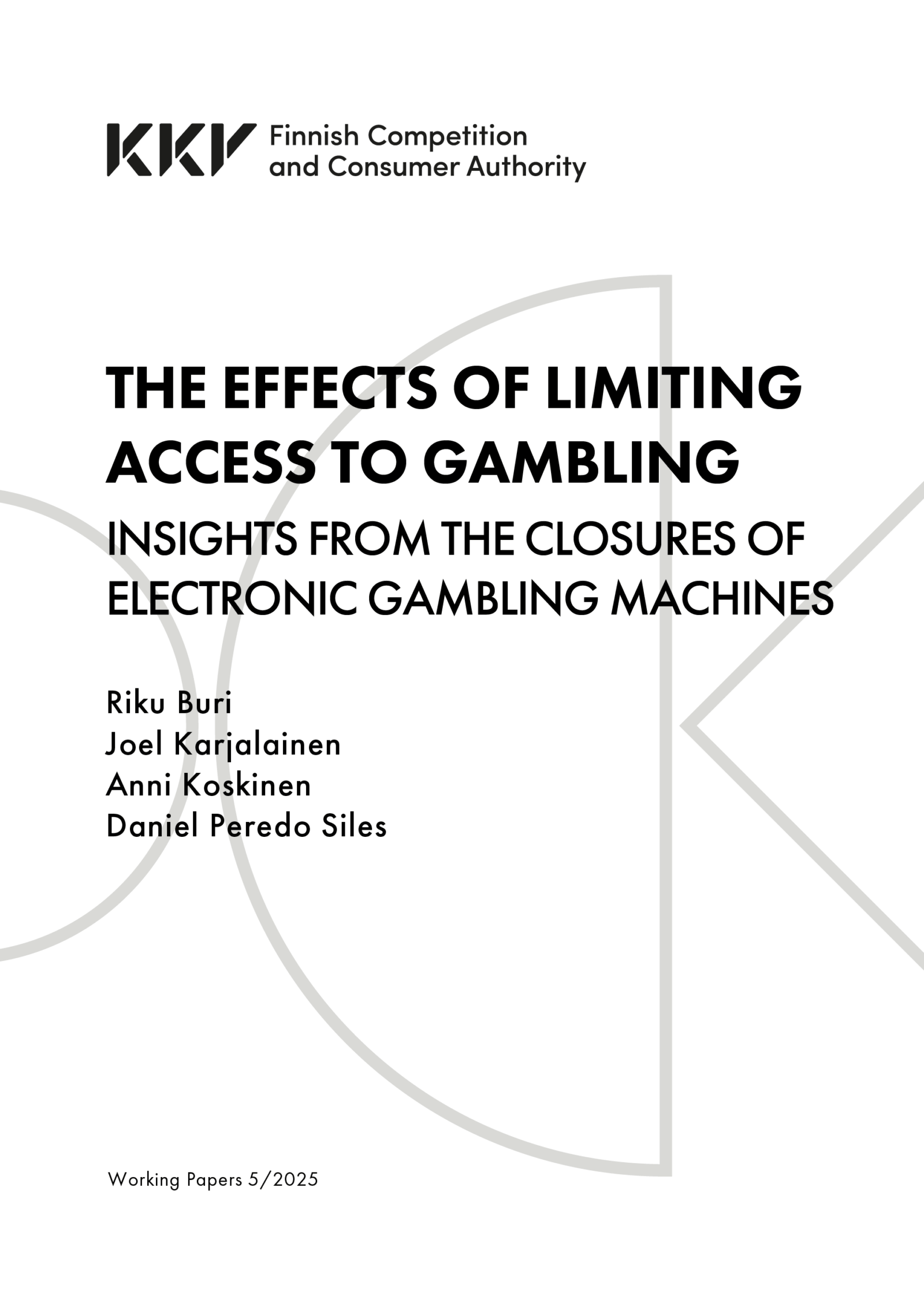Abstract
In industries where consumption generates negative externalities, governments can attempt to curb excess demand by restricting supply. However, this strategy may simply shift consumption to substitutes with similar negative consequences. We explore this issue in the Finnish gambling market using two quasi-experiments and a difference-in-differences framework to assess how reducing the supply of landbased gambling affects gambling volume. Our findings suggest that, overall, there is limited substitution between different types of gambling. However, among highvolume gamblers, we observe some substitution, though even for these individuals, total gambling volume declines.
